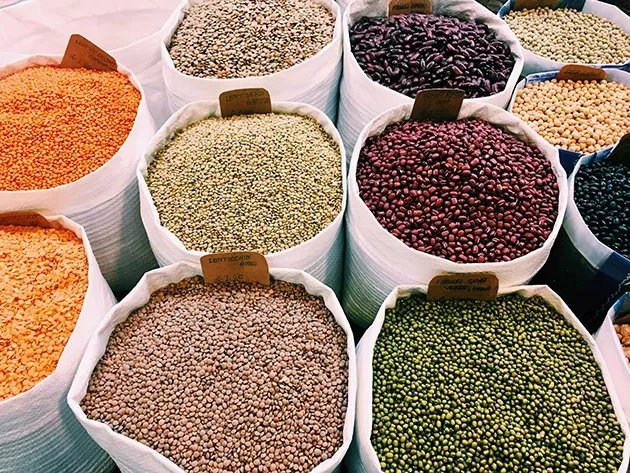The importation of fresh food is having a huge impact on the health of people around the world, with a reduction of up to 1.4 million deaths worldwide.
A study, published in Nature Food, looked at the health impacts of international food trade and found that in 2019 imports of fruits, vegetables, legumes and nuts are estimated to have improved dietary risks in importing countries and were associated with a reduction of around 1.4 million deaths from non-communicable diseases. Conversely, imports of red meat were associated with an increase of around 150,000 deaths in the same year.
Lead author, Prof Marco Springmann from the Environmental Change Institute (ECI) at the University of Oxford, said:
Linking dietary risks to international food trade can help us identify the role food imports play for dietary health in the importing country, but also link those impacts to the exporting country. This is important in light of possible trade disruptions from domestic policies such as Brexit, natural disasters such as from climate change, and armed conflicts such as between Russia and Ukraine.”
The authors argue that these risks should be considered and policies developed to safeguard trade in healthy foods and proper thought given to trade and agricultural policies around unhealthy foods.
Much of the food we consume is internationally traded, and it is accepted that this increases the diversity of food available to people. Very little is known about the implications of this trade on human health.
The researchers used detailed international trade data of all food and agricultural products imported and exported each year as well as mortality and population data. They focused on food groups that have been associated with diseases and looked at traded quantities and change in consumption in importing countries.
They were able to quantify the health implications of trade in food commodities for five dietary risks — fruits, vegetables, legumes, nuts and red meat — and their relationship to coronary heart disease, stroke, bowel cancer, and type 2 diabetes.

In terms of food demand, imports ranged from 2% of fruits in Africa to 64% in Europe, 4% of vegetables in Africa to 32% in Europe, 29% of legumes in Oceania to 100% in Europe and 5% of nuts in Africa to 97% in Europe. Red meat imports are 4% of demand in Africa and 23% in Europe.
Of the total reductions of diet related mortality, over half were associated with imports of food to Europe, particularly fruit and vegetables from the Americas and other parts of Europe.
The region that most contributed to net increases in mortality through high exports of red meat is Europe and the countries with the highest numbers of increased mortality were China, Japan, the United States, Germany and Italy.
Disruptions in the trade of foods associated with dietary risks can substantially affect the burden of diet-related diseases, especially in countries that are heavily import dependent, as has been seen in recent years as a result of natural disasters and climate change, armed conflict and policies that increase trade barriers.
This data on trade in dietary risks can help in planning trade agreements as well as help to plan for and mitigate against possible disruptions. The authors conclude that trade agreements should take into account the contribution of foods to health risks and policies be made to safeguard trade of health-promoting foods while also limiting that of unhealthy ones.
Prof Springmann added:
In addition to estimating the impacts from trade in healthy fresh foods, our study also put a health tag on the trade in unhealthy fresh foods, in particular red meat such as pork and beef whose consumption is linked to increased risk for all kinds of diet-related diseases. Here our study can help highlight the responsibility of food exporters and point the way for making health-sensitive food, trade, and agriculture policies.”

